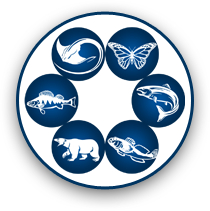Animal Behaviour (55-323): Winter 2019
Course description: The overall goal of the course is to introduce students to the diversity of animal behaviours. In doing so, the course provides a rigorous scientific framework of key concepts, theories, and models in which to understand behaviour from mechanistic, ecological, and evolutionary perspectives. Specifically, the course focuses on “proximate questions” of behaviour (i.e., the mechanistic causes of behaviour), reviewing genetic, hormonal, neural, and environmental influences on the development and expression of behaviour, as well as “ultimate questions” of behaviour (i.e., how behaviours are shaped and constrained by ecology and evolutionary history). In each circumstance, behavioural analyses will be integrated into an explicitly evolutionary framework, as we will be discussing behaviours that contribute to individual-level fitness, and exploring a variety of topics including the genetic, physiological, neural and developmental bases of behaviour, foraging, habitat selection, predator-prey interaction, communication, reproduction and mating systems, parental care, and social behaviour.
Great Lakes Institute for Environmental Research Proposal (03-68-570): Fall 2018-Winter 2019
Course description: This year-long course will focus on teaching graduate students how to implement the “scientific method” and how to apply an integrative multidisciplinary approach to their own thesis project by learning how to rationalize, innovate and critique work by other experts who are involved in ecosystem-based management decisions that affect aquatic and terrestrial systems. Students are expected to participate in discussions, prepare and deliver critiques of peer work This course will also address topics such as: science communication (writing and speaking), career paths, grant opportunities, scientific philosophies, etc.












